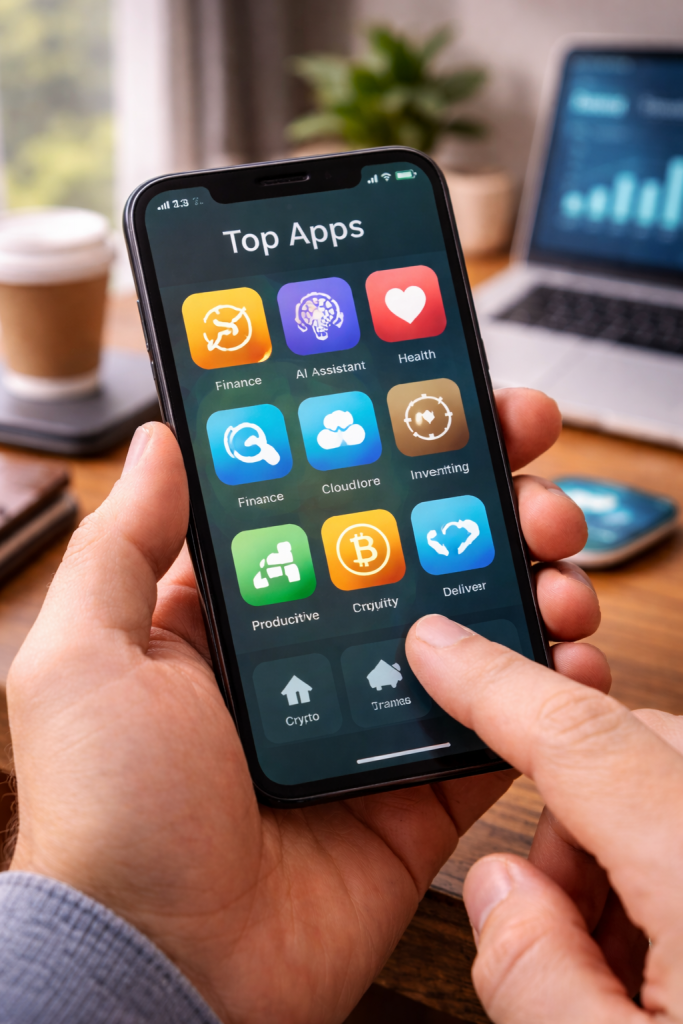
In today’s fast-paced world, people are more conscious than ever about their health, fitness, and overall well-being. Technology has become a powerful ally in this journey, and health and wellness apps are at the forefront of this digital transformation. These mobile applications provide users with accessible, personalized, and effective tools to monitor their health, improve fitness levels, manage stress, and lead healthier lives. With the global health app market projected to grow significantly over the next decade, it is clear that these tools are becoming an essential part of modern lifestyles.
Health and wellness apps have seen massive growth in recent years. According to research, millions of users worldwide rely on mobile applications to track their workouts, diet, sleep patterns, and mental health. The COVID-19 pandemic further accelerated this trend, as people turned to digital tools to maintain their fitness routines from home.
Popular categories of health apps include:
The convenience of having these tools on a smartphone means users can stay connected to their wellness goals anytime, anywhere. This accessibility is one of the biggest reasons for the exponential growth of the health and wellness app industry.
Fitness apps have revolutionized the way people approach exercise. Instead of paying for expensive gym memberships or hiring personal trainers, users now have access to personalized workout routines at their fingertips. Applications like MyFitnessPal, Fitbit, and Nike Training Club offer guided workouts, progress tracking, and motivational reminders that make fitness more engaging and achievable.
One of the most impactful benefits of these apps is personalization. By analyzing user data such as age, weight, and activity level, these platforms create tailored workout plans that cater to individual needs. This ensures users are not only exercising consistently but also doing so effectively and safely.
Furthermore, the integration of wearable devices such as smartwatches and fitness bands has amplified the efficiency of these apps. With real-time data on heart rate, oxygen levels, and daily activity, users gain deeper insights into their physical performance, making health management smarter than ever.
While physical fitness is essential, mental well-being is equally important. In recent years, mental health apps have emerged as powerful tools for managing stress, anxiety, and depression. Platforms like Headspace, Calm, and BetterHelp provide guided meditation sessions, sleep stories, mood tracking, and even access to licensed therapists.
The stigma around mental health has been gradually decreasing, and wellness apps have played a crucial role in normalizing conversations about it. They make mental health support more accessible to people who might otherwise hesitate to seek professional help.
Additionally, these apps encourage users to adopt daily mindfulness practices that promote long-term mental well-being. Whether through five-minute meditation breaks or breathing exercises before bed, users can easily incorporate stress-relieving habits into their busy schedules.
Eating healthy is one of the most challenging aspects of maintaining a balanced lifestyle. Fortunately, nutrition apps have simplified this process by offering meal tracking, personalized diet recommendations, and grocery list planning.
Applications such as Lifesum, Yazio, and MyPlate allow users to log their meals, analyze macronutrient intake, and receive reminders to stay hydrated. Many of these platforms also integrate with fitness trackers, giving users a holistic view of their overall health.
For people with specific health goals—such as weight loss, muscle gain, or managing conditions like diabetes—nutrition apps provide tailored guidance. By helping users make informed decisions about food, these apps empower individuals to maintain sustainable and healthier eating habits.
The future of health and wellness apps is incredibly promising. With advancements in artificial intelligence (AI), machine learning, and wearable technology, these apps are becoming more intelligent and adaptive. AI-driven recommendations can predict user needs, suggest preventive care, and detect early signs of potential health risks.
Moreover, the integration of telemedicine features within health apps will make professional healthcare more accessible. Imagine consulting with a doctor, receiving prescriptions, and tracking recovery progress—all from your smartphone.
Another emerging trend is the focus on holistic wellness. Future apps will likely merge physical, mental, and nutritional health into one seamless platform, creating a 360-degree approach to well-being. This will further solidify their role as indispensable tools in modern lifestyles.
Health and wellness apps have transformed how people approach fitness, nutrition, and mental well-being. With their accessibility, personalization, and integration with modern technology, they have become vital in helping individuals achieve healthier and more balanced lives. As the industry continues to evolve, these apps will not only support daily wellness goals but also shape the future of healthcare itself.
For individuals looking to take charge of their health, downloading a trusted wellness app is no longer just an option—it’s a lifestyle choice.